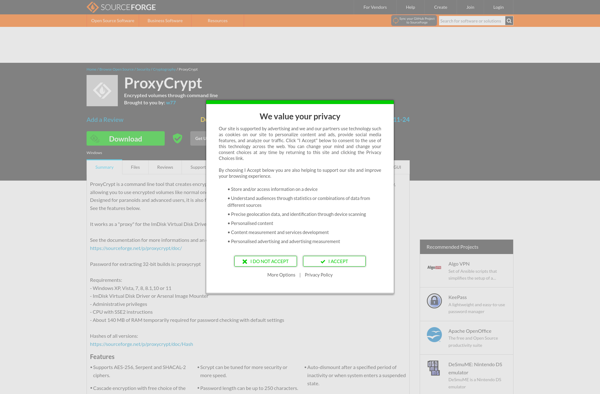TrueCrypt

TrueCrypt: Open-Source Encryption Software for Secure Data Storage
TrueCrypt encrypts hard drives and creates virtual encrypted disks for secure file storage, compatible with Windows, Mac OSX, and Linux.
What is TrueCrypt?
TrueCrypt is a discontinued source-available freeware utility used for on-the-fly encryption (OTFE). It can create a virtual encrypted disk within a file or encrypt a partition or an entire hard drive. First released in 2004, TrueCrypt was initially based on Encrypting File System (EFS) code in Windows 2000, but completely rewritten by 2008. The software enables encryption of whole disks as well as virtual disks stored as files on mounted partitions or devices. Volumes created by TrueCrypt can be mounted as drives. The contained data is secured via strong encryption.
TrueCrypt supports AES, Serpent, Twofish encryption ciphers and combinations thereof for algorithm cascading. Its cryptographic security was reviewed by security audits funded by the European Commission and subsequently integrated into the software.
Originally released for Microsoft Windows, TrueCrypt has been ported to macOS, Linux, FreeBSD, NetBSD, Solaris and OpenSolaris. Starting with version 6.0, released in February 2012, TrueCrypt only supports Windows 7/Vista/XP, ending support for older versions of Windows as well as all non-Windows operating systems.
On 28 May 2014, the TrueCrypt website announced that the project was no longer maintained and its developers could no longer guarantee the security of the software. Some in the infosec community speculated that the announcement could imply that the developers were acting under coercion or that a silent unfixable vulnerability had been discovered in the encryption program. Afterwards, a first code audit of TrueCrypt 7.1a confirmed multiple critical security issues with the software.
TrueCrypt Features
Features
- On-the-fly encryption and decryption of hard drives, partitions and virtual volumes
- Creation of virtual encrypted disks within a file or partition
- Encryption of entire partitions or drives
- Plausible deniability using hidden volumes
- Support for common encryption algorithms like AES, Serpent and Twofish
Pricing
- Open Source
Pros
Cons
Official Links
Reviews & Ratings
Login to ReviewThe Best TrueCrypt Alternatives
Top Security & Privacy and Encryption and other similar apps like TrueCrypt
Here are some alternatives to TrueCrypt:
Suggest an alternative ❐ZIPcrypt
Windows BitLocker

VeraCrypt

Cryptomator

LUKS
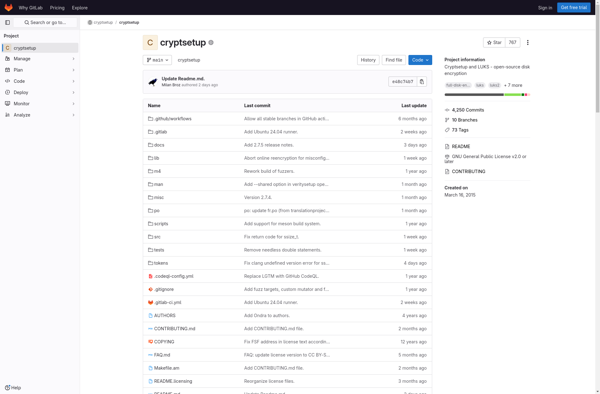
AES Crypt
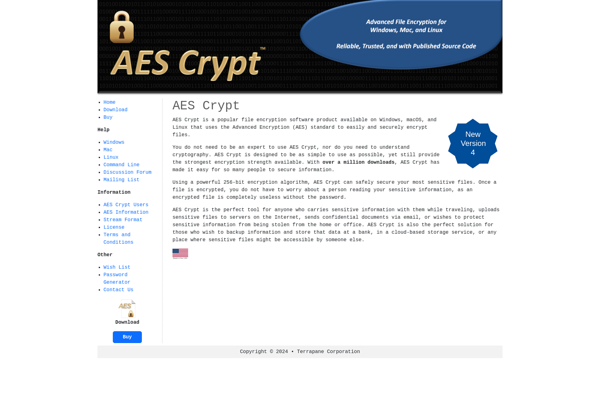
FileVault
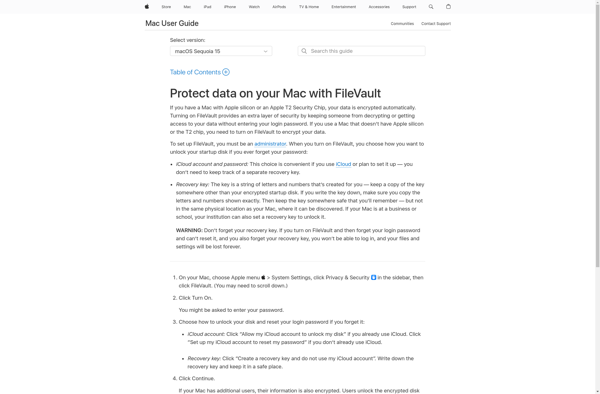
Gnome Encfs Manager
File Locker (Image and Video Hider)

Quick Text Encryption

DiskCryptor

Steganos Privacy Suite

BoxCryptor Classic

ECryptfs
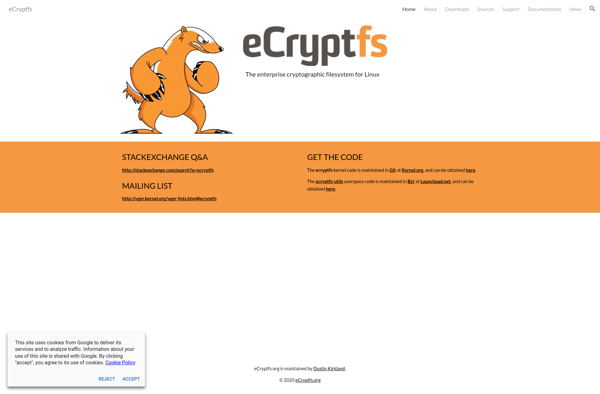
FinalCrypt
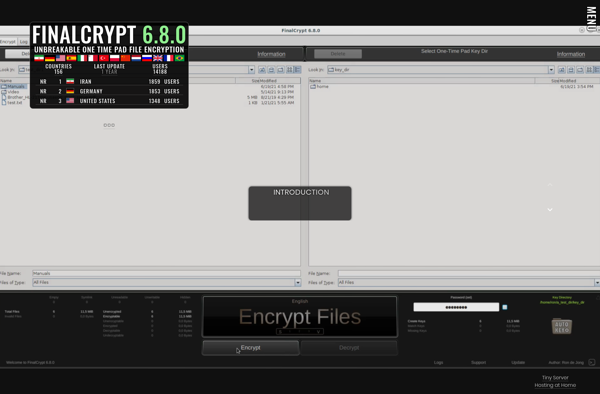
Kryptor
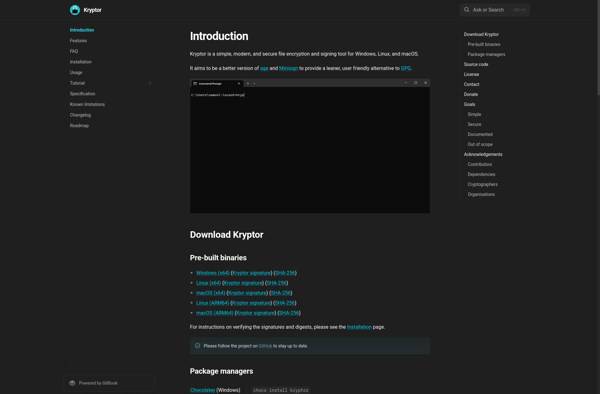
EDS (Encrypted Data Store)

SafeHouse Explorer

Encrypto

WinGPG

FreeOTFE

Kruptos
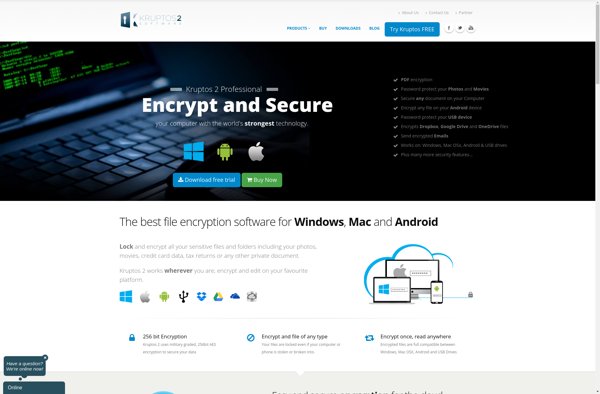
Rohos Mini Drive

SecurStick
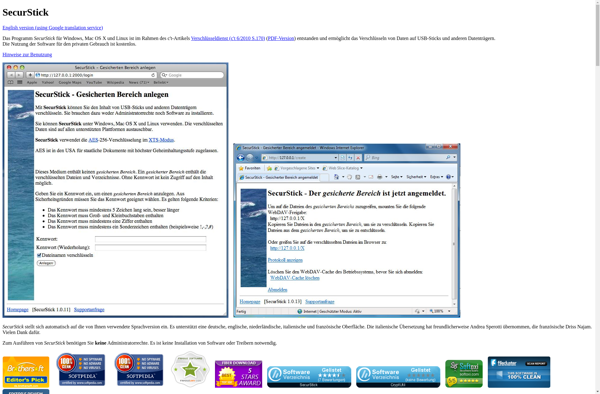
Luks manager

File Lock PEA

Hasleo BitLocker Anywhere

Steganos Safe

Picocrypt
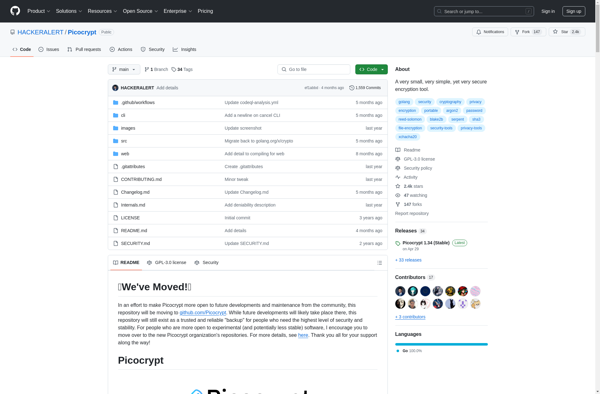
Isylock
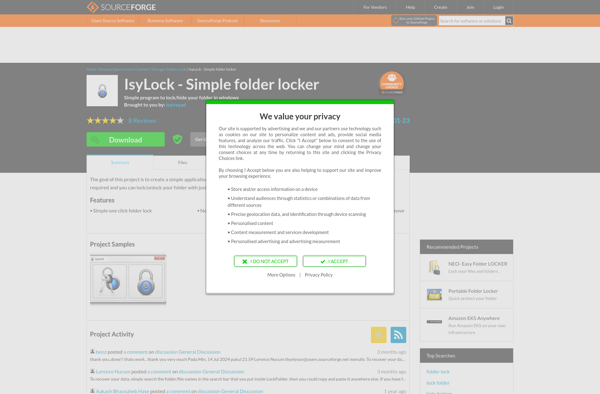
Zed!

DroidFS

USB Safeguard

CryFS

KodeFile

Cloudfogger

USB Secure

Jetico BestCrypt
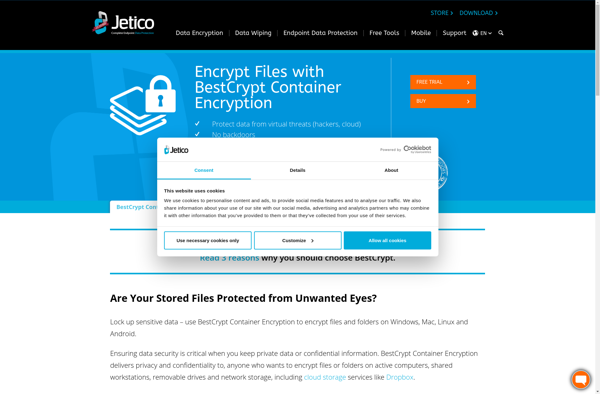
Private Disk

DocWallet

NCrypted Cloud

Symantec Drive Encryption
Hat.sh

BoxWrap

DCrypt
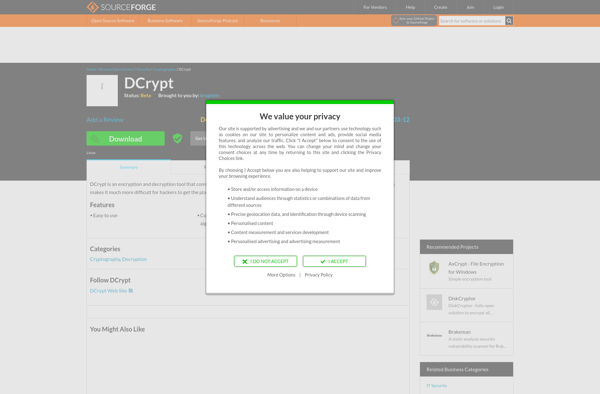
EncFSMP

SSuite Agnot StrongBox Security

CryptoForge

WinGuard Pro

ZuluCrypt
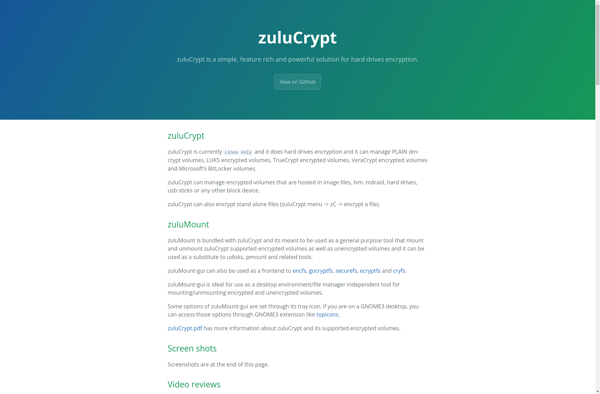
S.S.E. File Encryptor
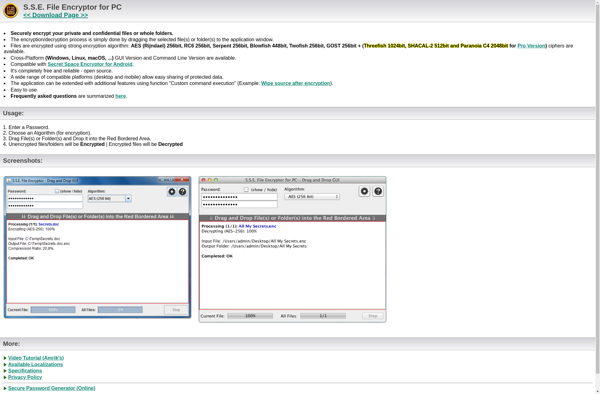
Encfs4win

USBCrypt
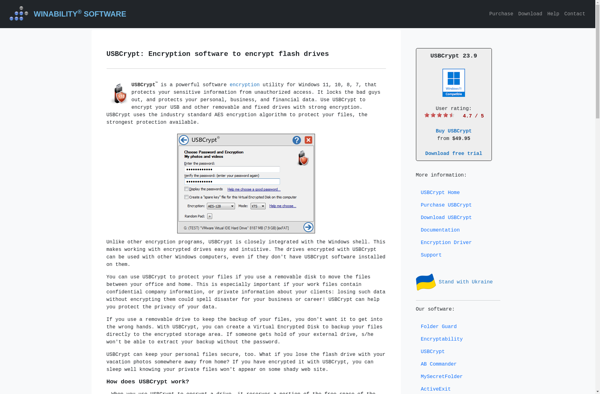
DsCrypt
Sookasa

SecretVaultpro
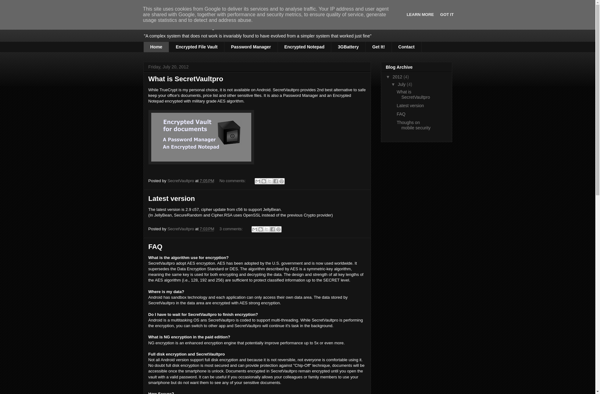
Quick File Locker

Unicode Crypter

Standalone EXE Document Locker

Exocet
TruPax
CZIP X

Cryptic Disk

FileWall

GostCrypt

OneTime

RealCrypt
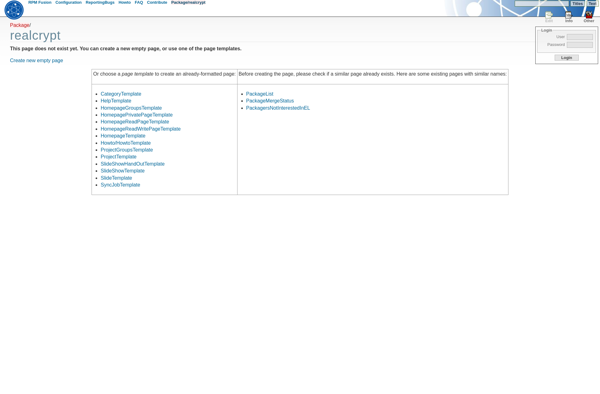
Advanced File Security Basic
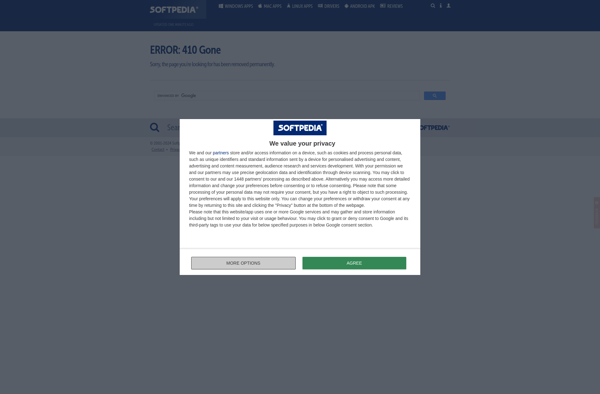
ImmediateCrypt
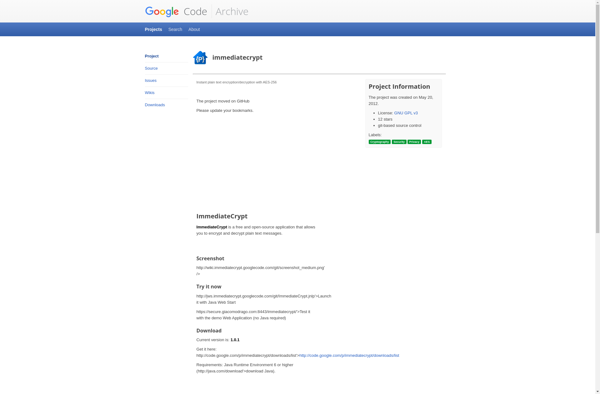
Steadycrypt

DigiVault
Luksus
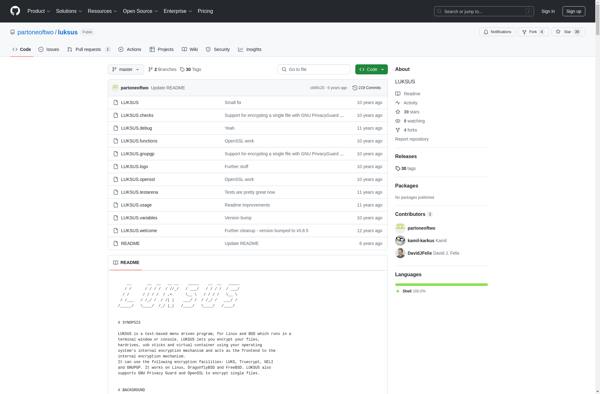
Cryptonite

FREE CompuSec

PenProtect
Masker

Encrypted Partition Mounter
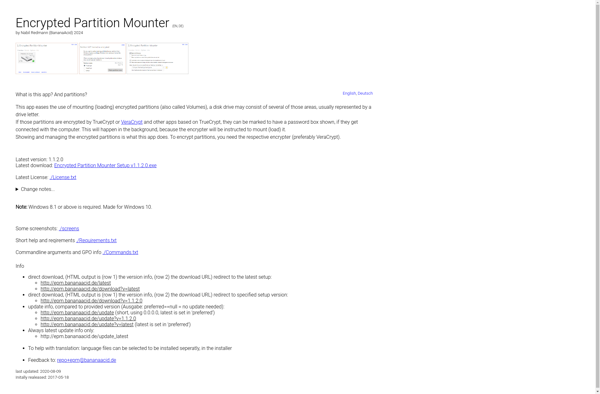
Conceal

Free File Camouflage

Cppcryptfs
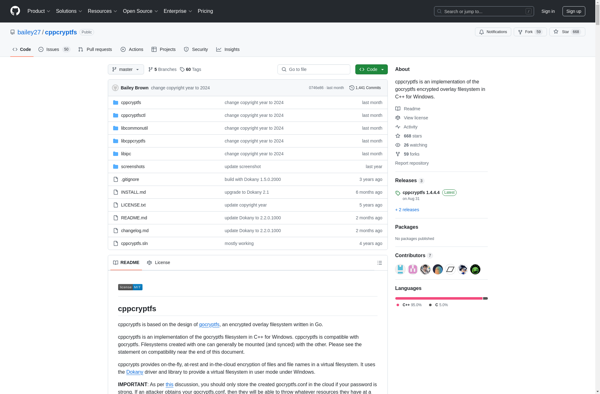
R-Crypto

Safeplicity
ProxyCrypt
